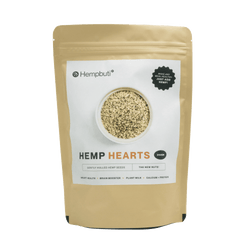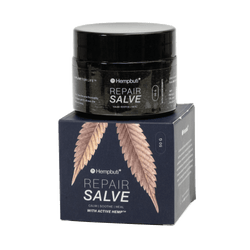Hey night owls, Humna here! Are you tired of being tired? I get it. When you're staring at the ceiling at 2 AM, you'll do just about anything for a one-way ticket to dreamland. In your quest for rest, you’ve probably come across two very different contenders: the powerhouse prescription, Ambien, and the natural wellness darling, CBD oil.
One is a heavyweight sedative, the other a gentle calming agent. But which one is the right choice for you? Let's break down this ultimate sleep showdown.
What Is Ambien (Zolpidem)?
Think of Ambien as the "knockout" punch for insomnia. It’s a prescription sedative-hypnotic drug that works by slowing down your brain activity, effectively forcing you into sleep. It's powerful, fast-acting, and clinically proven to help people with severe insomnia fall and stay asleep. But that power comes with a price—a long list of potential side effects and a risk of dependency.
What Is CBD Oil?
On the other side of the ring is CBD (cannabidiol) oil. This all-natural extract from the hemp plant is celebrated for its ability to promote a sense of calm and relaxation. Unlike Ambien, CBD isn't a sedative. It doesn't knock you out. Instead, it works with your body's systems to ease the anxiety or pain that might be keeping you awake in the first place, helping you drift off to sleep more naturally. And crucially, it has no psychoactive properties, meaning it won't get you "high".
The Head-to-Head Comparison
So, how do they really stack up against each other? Let's put them side-by-side.
The Side Effect Story: It's a Big Deal
The biggest difference between these two lies in their side effect profiles. While CBD oil’s side effects are typically mild and manageable, Ambien's can be downright scary.
Users often report a "drugged" feeling or a next-day hangover that impairs coordination and focus. More alarming are the complex sleep behaviors like sleepwalking, sleep-eating, or even sleep-driving, which users have no memory of afterward. Long-term use is also linked to chronic digestive problems and an increased risk of depression.

The Verdict: Which Sleep Aid Wins?
Here’s the honest truth: it depends entirely on your needs.
If you're dealing with severe, debilitating insomnia and need a powerful, short-term solution to get some rest, Ambien is the more clinically effective option, but it must be used cautiously and under strict medical supervision due to its risks.
However, if your sleep troubles are milder or stem from stress, anxiety, or chronic pain, CBD oil is arguably the better, safer long-term choice. It offers a gentle path to sleep without the hangover, dependency risk, or scary side effects. It helps your body find its own way to rest, rather than forcing it.
Ultimately, this decision should always be made with your doctor. They can help you weigh the pros and cons and choose a path that leads to safer, more sustainable sleep. Because a good night's rest should restore you, not introduce a new set of problems.









